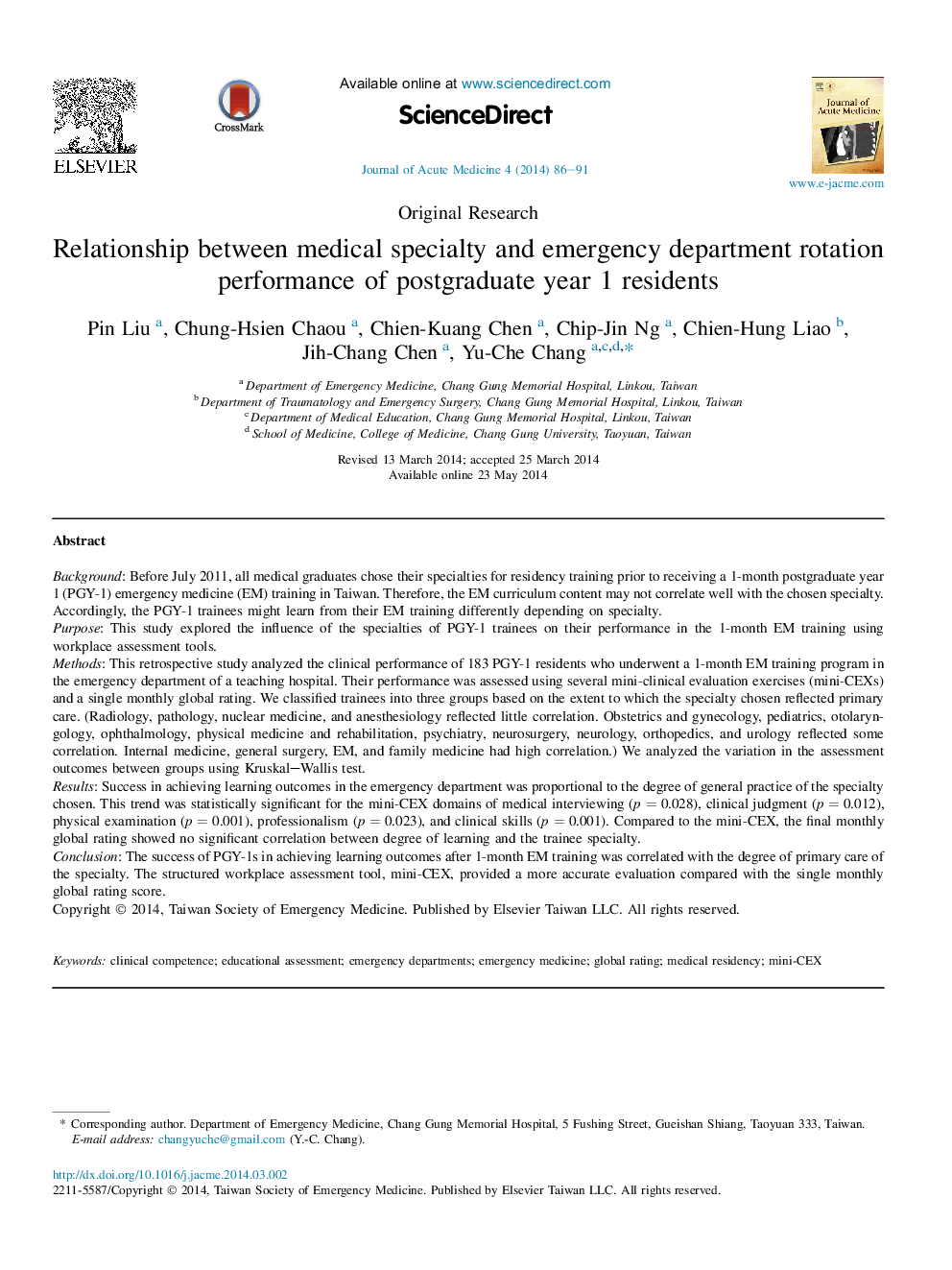| کد مقاله | کد نشریه | سال انتشار | مقاله انگلیسی | نسخه تمام متن |
|---|---|---|---|---|
| 3244970 | 1206580 | 2014 | 6 صفحه PDF | دانلود رایگان |
BackgroundBefore July 2011, all medical graduates chose their specialties for residency training prior to receiving a 1-month postgraduate year 1 (PGY-1) emergency medicine (EM) training in Taiwan. Therefore, the EM curriculum content may not correlate well with the chosen specialty. Accordingly, the PGY-1 trainees might learn from their EM training differently depending on specialty.PurposeThis study explored the influence of the specialties of PGY-1 trainees on their performance in the 1-month EM training using workplace assessment tools.MethodsThis retrospective study analyzed the clinical performance of 183 PGY-1 residents who underwent a 1-month EM training program in the emergency department of a teaching hospital. Their performance was assessed using several mini-clinical evaluation exercises (mini-CEXs) and a single monthly global rating. We classified trainees into three groups based on the extent to which the specialty chosen reflected primary care. (Radiology, pathology, nuclear medicine, and anesthesiology reflected little correlation. Obstetrics and gynecology, pediatrics, otolaryngology, ophthalmology, physical medicine and rehabilitation, psychiatry, neurosurgery, neurology, orthopedics, and urology reflected some correlation. Internal medicine, general surgery, EM, and family medicine had high correlation.) We analyzed the variation in the assessment outcomes between groups using Kruskal–Wallis test.ResultsSuccess in achieving learning outcomes in the emergency department was proportional to the degree of general practice of the specialty chosen. This trend was statistically significant for the mini-CEX domains of medical interviewing (p = 0.028), clinical judgment (p = 0.012), physical examination (p = 0.001), professionalism (p = 0.023), and clinical skills (p = 0.001). Compared to the mini-CEX, the final monthly global rating showed no significant correlation between degree of learning and the trainee specialty.ConclusionThe success of PGY-1s in achieving learning outcomes after 1-month EM training was correlated with the degree of primary care of the specialty. The structured workplace assessment tool, mini-CEX, provided a more accurate evaluation compared with the single monthly global rating score.
Journal: Journal of Acute Medicine - Volume 4, Issue 2, June 2014, Pages 86–91
